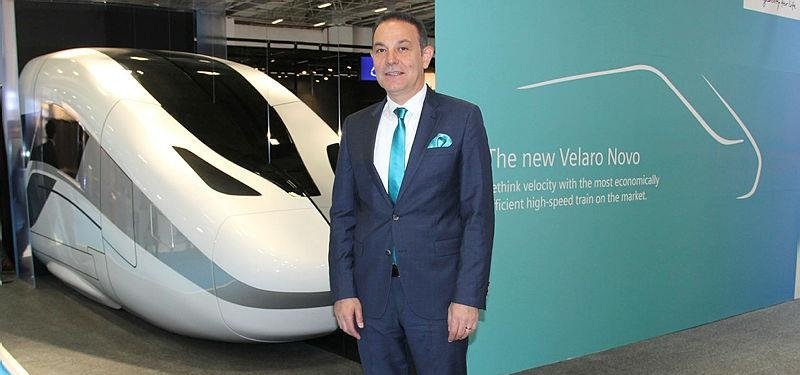
Siemens to deliver 10 more high-speed trains by 2020
- Economy
- Anadolu Agency
- Published Date: 02:59 | 12 April 2019
- Modified Date: 02:59 | 12 April 2019
Siemens Mobility Transport Systems Inc. will deliver 10 high-speed trains to Turkey until 2020. The trains are currently in production while the first one will hit the tracks by the end of this year, the company's chairman Rasim Cüneyt Genç said.
Speaking to journalists at the Eurasia Rail, an international railway, light rail systems and logistics exhibition held in the Aegean province of İzmir, Genç said that Siemens has been operating in rail systems regarding both infrastructure and vehicles.
Expressing that they also offer smart traffic systems and electromechanical control solutions on highways, Genç noted that the company has a long history in Turkey.
According to Genç, Siemens' first project in Turkey regarding transport systems started with transforming the Istanbul tram line, which was running with horses, into an electric one in 1913 and signed a contract on high-speed trains in the country in 2013. Currently, seven of them are running on Turkish State Railways (TCDD) lines. These trains run at speeds of 300 kilometers or over per hour. In addition to the existing seven sets of Velaro high-speed trains, the company has received an order for 10 high-speed trains which are in the production stage at the moment. By the end of this year, the first trains will start to arrive and will be on the tracks in 2020.
Indicating that the company has undertaken many projects in Turkey's transport industry, Genç said, "We are the company offering the greatest number of solutions regarding tunnel electronic mechanics and regarding finished projects in Turkey. Electronic mechanics of 25 percent of all tunnels have been developed by our company. We also have electronic mechanical solutions on Osman Gazi and Yavuz Sultan Selim bridges."
Pointing out that more than 50 percent of the world population lives in metropolises, Genç noted that this will exceed 60 percent by 2050.
Emphasizing that this accompanies a number of problems, Genç said, "In addition to issues such as air pollution, environmental pollution and noise; the time spent in traffic is also a major problem. The use of electric vehicles more and more with every passing day in the sense of minimizing the damage to the environment is becoming an important issue. We continue to spearhead in both energy and transportation in this field."
"Sustainability and sensitivity to the environment in all our products are a matter of priority. More than 90 percent of all our products, including vehicles, are made of renewable materials. We have solutions to observe environmental pollution and emissions with our urban and intercity smart traffic systems," he said.

